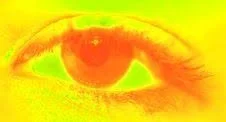
UP-TO-DATE, RESEARCH BASED INFORMATION ABOUT PSYCHEDELICS.
Ketamine for depression - Knowns, unknowns, possibilities, barriers, and opportunities
Ketamine has the potential to change our approach to the clinical management of depression if knowledge, attitudinal, and regulatory barriers can be overcome, and if risks related to comorbidities and concurrent medications are addressed by close supervision.
Insights, life changes and lifestyle changes reported by individuals consuming ayahuasca in naturalistic settings: Nature, frequency and associations with mental health and wellbeing
Insights and subsequent life and lifestyle changes appear to have a central role in the transformative effects reported by individuals consuming ayahuasca, with these occurring across contexts of use and demographic groups.
Does MDMA have treatment potential in sexual dysfunction? A systematic review of outcomes across the female and male sexual response cycles
Our findings suggest that MDMA generally increases sexual desire and intensifies orgasm when achieved. While producing conflicting evidence on sexual arousal in both sexes, MDMA may impair erectile and ejaculatory function in men.
Psychological and physiological effects of extended DMT
Taken together, these findings demonstrate the safety and effectiveness of continuous IV DMT administration, laying the groundwork for the further development of this method of administration for basic and clinical research.
Randomized trial of ketamine masked by surgical anesthesia in patients with depression
Ketamine may have antidepressant properties, but its acute psychoactive effects complicate successful masking in placebo-controlled trials
Assessing the risk of symptom worsening in psilocybin-assisted therapy for depression: A systematic review and individual participant data meta-analysis
The psilocybin arm showed a lower likelihood of symptom worsening versus waitlist, and no difference in the likelihood of symptom worsening versus escitalopram.
Roland Griffiths Is dead at 77; Led a renaissance in psychedelics research
Roland Griffiths, a professor of behavioral science and psychiatry whose pioneering work in the study of psychedelics helped usher in a new era of research into those once banned substances — and reintroduced the mystical into scientific discourse about them — died on Monday at his home in Baltimore.
Longitudinal associations between psychedelic use and meditation practices in the United States and the United Kingdom
Psychedelic use might lead to greater engagement with meditation practices such as mindfulness meditation, while meditation practices such as loving-kindness or compassion medication might buffer against certain challenging experiences associated with psychedelic use.
Quality brands emerge in the legacy mushroom market
I’ve had a chance to sample numerous legacy mushroom market products, ranging from psilocybin-infused chocolate to jerky to gummies to honey to water-soluble drink packets to liquor to marshmallows and more. In the spirit of harm reduction, education, and providing some context for the elusive and nebulous legacy mushroom market, I’ll review a few of the many branded products now floating around.
Shame, guilt and psychedelic experience: Results from a prospective, longitudinal survey of real-world psilocybin use.
The activation of shame-related experiences with psychedelics may pose a unique and context-dependent learning condition
Repeated low doses of psilocybin increase resilience to stress, lower compulsive actions, and strengthen cortical connections to the paraventricular thalamic nucleus in rats
These results establish a well-validated regimen for further experiments probing the effects of repeated low doses of psilocybin. Results further substantiate anecdotal reports of the benefits of psilocybin microdosing as a therapeutic intervention, while pointing to a possible physiological mechanism.
MDMA-assisted psychotherapy for PTSD in adolescents: rationale, potential, risks, and considerations
Evidence suggests that as an adjunct to therapy, MDMA may reduce avoidance and enable trauma processing, strengthen therapeutic alliance, enhance extinction learning and trauma-related reappraisal, and hold potential beyond PTSD symptoms.
The ego in psychedelic drug action – ego defenses, ego boundaries, and the therapeutic role of regression
Aiming for increased flexibility of habitual ego patterns, the psycholytic approach is generally compatible with other forms of psychedelic-assisted therapy, such as third wave cognitive behavioral approaches.
Esketamine nasal spray versus quetiapine for treatment-resistant depression
In patients with treatment-resistant depression, esketamine nasal spray plus an SSRI or SNRI was superior to extended-release quetiapine plus an SSRI or SNRI with respect to remission at week 8.
DMT-SSRI combination shows potential for depression
The potentially enhanced efficacy effect of a DMT-based treatment when administered with SSRIs could lead to greater therapeutic benefit for [major depressive disorder (MDD)] patients.
Back from the rabbit hole. Theoretical considerations and practical guidelines on psychedelic integration for mental health specialists
this article presents proposed comprehensive guidelines covering both theoretical and practical aspects of psychedelic integration, that are intended to serve as a resource for various mental health specialists
History repeating: guidelines to address common problems in psychedelic science
We show how these problems threaten internal validity (treatment effects are due to factors unrelated to the treatment), external validity (lack of generalizability), construct validity (unclear working mechanism), or statistical conclusion validity (conclusions do not follow from the data and methods).
Three cases of reported improvement in microsmia and anosmia following naturalistic use of psilocybin and LSD
Given the need for novel treatments for olfactory dysfunction, increasing reports describing improvement in these conditions following psychedelic use and potential biological plausibility, we believe that the possible therapeutic benefits of psychedelics for these conditions deserve further investigation.




















